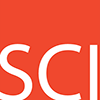During 2018 and 2019, OSI’s summit group (led by Scott Plutchak in 2018) developed a strong plan for moving OSI beyond its initial deliberation phase (2016-18) and into its “action” phase where this international group’s ideas and insights will get transformed into policies and products.
The goals of OSI are to:
OSI will accomplish these goals between 2020 and 2025 by pursuing the following three categories of objectives: studies, tech solutions, and education/outreach.
OSI will begin conducting studies that target key issues in scholarly communication where a lack of firm understanding is making it difficult to create effective policy reforms. These studies will be “leveraged” through OSI, not outsourced. That is, OSI has enough internal and volunteer capacity to do all the study design, oversight, writing and analyses in-house. Funding will be used mostly for data-gathering and statistical analyses. The OSI team will identify and hire researchers as needed (some may end up being OSI participants already) who can conduct original research work as needed, and hire statisticians as needed to crunch numbers and maybe take a first pass at analysis, but the final writing and analysis will be done in-house by OSI participants.
OSI will also begin developing tech products and solutions that fill key needs in the scholarly communication ecosystem where a lack of government and/or private sector action has hindered the progress of open reforms. As with OSI studies, these products and solutions will be “leveraged” through OSI, not outsourced. That is, OSI will design and oversee development in-house, and funds will be used for certain programming and other work that cannot be handled in-house. The OSI team will identify and hire personnel as needed (some may end up being OSI participants already) who can conduct this work as needed, but the final design decisions and assessments will be done in-house by OSI participants. All of these products and solutions will fully deploy over the 2020-25 time-period, after which they will become self-supporting through various combinations of advertising, sponsor fees, and member fees for content providers (none of these products/solutions will have user fees for basic access, although premium access models may emerge as a means of support).
In addition to studies and tech products, OSI’s existing work/priorities will also be supported by this grant. This includes:
